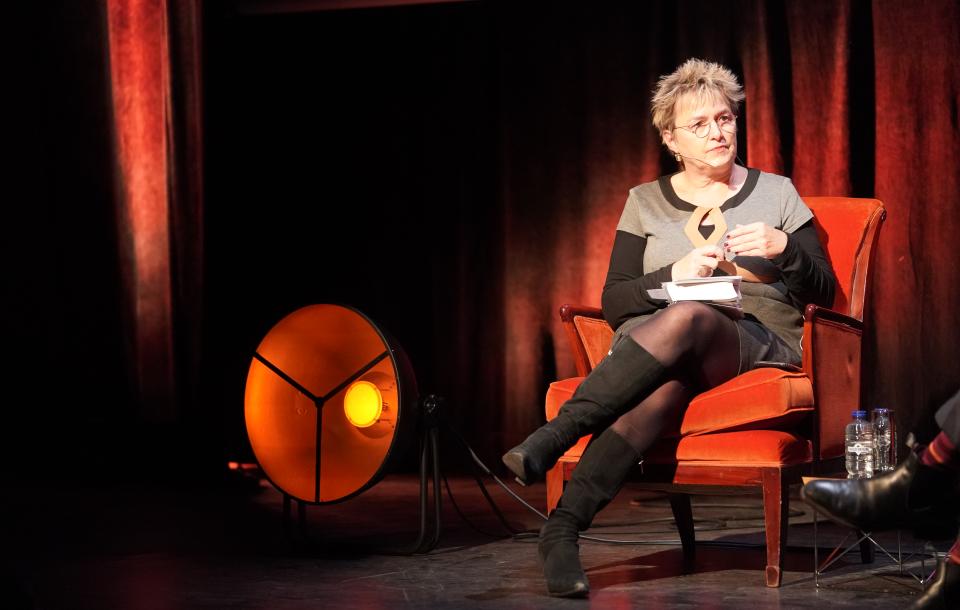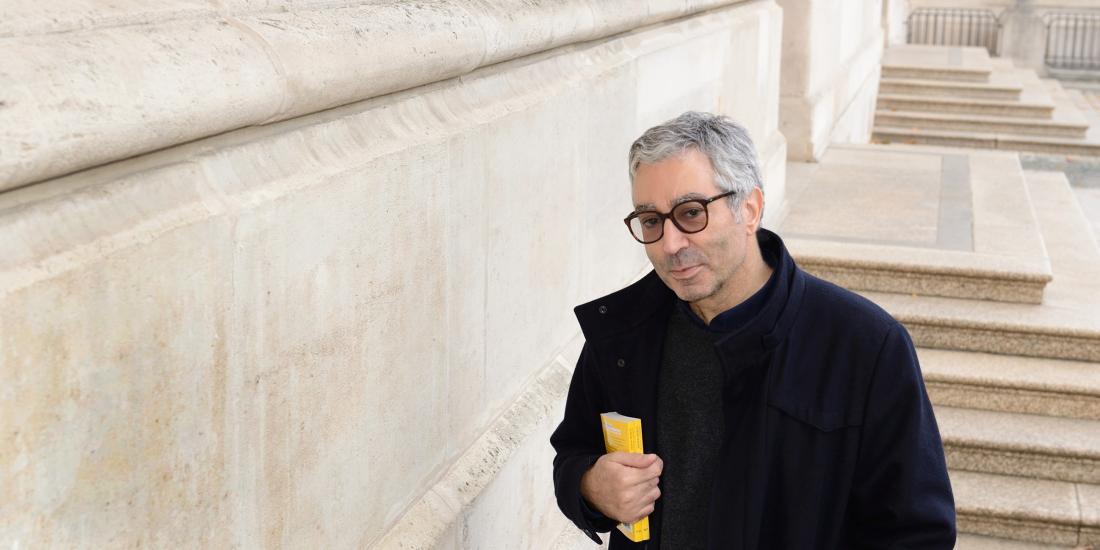Why is the thesis developed by Didier Eribon in Retour à Reims in 2009 still relevant today?*
Because part of the French political class did not learn the lessons it could have taken from the book. In this autobiographical essay, Didier Eribon returns to his family after a long absence and discovers that although it had always been left-wing - communist - it is now in the power of the Front National. And he realised that this shift to the far right was made possible because the socialist left had totally abandoned its traditional discourse and distanced itself from the people, to become a left for the elite, alien to the concerns of the people it is supposed to defend. What was true in 2009 is even more so today; as the politicians of the traditional left have not grasped the observation made by Didier Eribon, the phenomenon has persisted and grown. And in my opinion, Emmanuel Macron is making the same mistake, as by avoiding the social question and lacking empathy, he is allowing Marine Le Pen to take on a much stronger role and occupy this terrain alone.
We know that the popular electorate identifies with Marine Le Pen. On the other hand, Éric Zemmour has succeeded in siphoning off an educated, bourgeois electorate. Shouldn't the book's thesis be updated?
Eribon's thesis remains valid in explaining the success of Marine Le Pen. But as far as Éric Zemmour's electorate is concerned - it will be fascinating to listen to the philosopher talk about this subject - the thesis of Retour à Reims must be supplemented. Another lesson from the first round of the presidential election is that the vote confirmed, at least at the national level, the collapse of the traditional left-right divide, which had already been seen in the 2017 election. Does Didier Eribon believe that Jean-Luc Mélenchon was the one who understood the message of Retour à Reims? The philosopher makes no secret of the fact that he voted for Mélenchon in the first round, despite the candidate making an error in his support for Russia and his blindness at the beginning of the Russian-Ukrainian crisis: does attention to the social question excuse everything? We will ask him.

How can Marine Le Pen's qualification for the second round be explained?
Marine Le Pen succeeded in making people forget her stance on Russia because she focused on purchasing power, which is at the top of the French population's concerns. She gives the impression that she listens to people and respects their feelings. She has also cleverly made people forget that her party is financed by a Russian bank close to the government, but I also wonder, and here too there will be an opportunity to discuss this with Didier Eribon, if her electorate tends to forgive quickly, as long as it feels that she is trying to take care of it. In addition, Marine Le Pen has taken care to soften her image; she is much warmer, more human, she confesses her mistakes more readily, shows her weaknesses, etc., while in substance, her manifesto remains the same and retains the fundamentals of the far right which threaten the rule of law, the European Union and equality between French citizens. Paradoxically, using the Jupiterian governance of the outgoing president, she makes him appear as a despot who imposed masks and despised the masses, and she simultaneously manages to embody, in appearance at least, the role of the mother concerned about the welfare of her children. For the second round, however, the content of her manifesto is finally being scrutinised in detail, and we will see if it will be enough to divert the French people who will vote, or encourage abstentionists to use their ballot.
The results of the 2017 election have often been interpreted in terms of class, with the working classes supporting Marine Le Pen, and the France of the metropolises and the left- and right-wing bourgeoisie voting for Emmanuel Macron. Is this still the case five years later?
There is talk of a class vote for the Le Pen effect, but Zemmour's electorate is much more heterogeneous and ranges from the wealthy classes to the educated but less stable middle class. More generally, the far right is benefiting from the disintegration of the traditional right. The heavyweights of the so-called moderate right have tried to move closer to the far-right theses, but judging by the results of the first round in 2017 and 10 April this year, their electorate seems to have preferred either to join Emmanuel Macron or directly support the Rassemblement National and Reconquête! It would almost take a "Return to Reims of the Right" to tell the story of a right-wing voter returning to his community and realising that it has turned to the extreme right during his absence. To do this, we would have to question the breakdown of the spectrum of left-right markers, on which we would like to hear from Didier Eribon. This left-right axis has basically been laid to rest by three entities: the Socialist Party, which has turned away from its message and its natural constituency; the right, which made the mistake of believing that it would triumph over the far right by moving closer to its ideas; and Emmanuel Macron, who created an alternative force in the centre to welcome disappointed voters from the moderate left and right. Of course, we will have to see if this collapse is confirmed in the Legislative elections next June and wonder, in the longer term, if Emmanuel Macron's party will survive once the question of his succession is raised. There are still many unknowns and that is why I am delighted to be able to question Didier Eribon on all these issues. I think it would be appropriate to produce a deep analysis of the new French political landscape on the basis of the next electoral results. How, for example, can we explain that today the extreme right represents a block of more than 30% of voters and the anti-establishment more than 50%? Is it simply the spirit of the times or a deeper phenomenon? We can also wonder if what most French politicians are lacking is a Return to Reims, that is to say a return to themselves through introspection on their points of origin, from which they have distanced themselves, but also through deep and humble listening to the citizens and analysis of a political language that no longer has an impact. Where do we have to go back to to find a relevant way of addressing and acting on behalf of a people that have also become alienated from politics? More fundamentally, we will also ask Didier Eribon if, with the emergence of extremely serious, successive and then simultaneous crises - the destruction of the planet, the pandemic and the war on the European continent -, a politician would still be able to embrace this complex and anxiety-provoking world that is emerging, other than by responding in angry mode or with "there's only one way to do it. Is there another way?
Elements of response with Didier Eribon and Béatrice Delvaux, on 27 April at Bozar.
* The interview with Beatrice Delvaux took place before the second round of the presidential elections.

